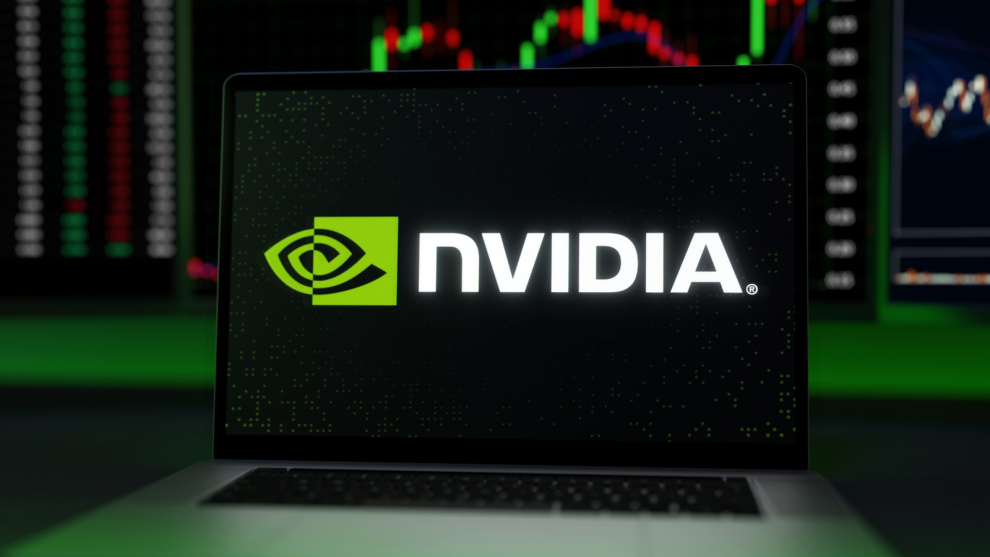Nvidia (NASDAQ:NVDA) stock is currently one of the hottest buys, with a remarkable 163% return since the beginning of 2023.
This surge has brought the chip maker close to a $1 trillion market cap, putting it in the same league as Apple, Microsoft, Alphabet, and Amazon. However, NVDA stock stands out with its unique valuation.
Nvidia’s price tag, in terms of earnings and sales, surpasses that of the four largest stocks in the market. However, this doesn’t imply that one should avoid buying it or sell if they already own it.
Investment experts suggest that prospective Nvidia investors should consider two important factors: examine the hype of the stock and prepare for unpredictability.
| NVDA | Nvidia | $438.08 |
Nvidia Remains Strong
Nvidia’s stock struggled in 2022 due to economic challenges, resulting in a 21% drop in fourth-quarter revenue to $6.05 billion.
Weakness in the gaming segment and the impact of inflation on consumer purchasing power affected the demand for graphics cards. The cryptocurrency mining market downturn led to a surplus of GPUs, providing gamers with more choices for upgrades.
Despite the cyclical nature of the industry, Nvidia’s dominant position in the discrete GPU market and continuous technological advancements give it a strong competitive advantage.
With the release of its RTX 40 graphics cards, which offer significant performance enhancements, Nvidia is poised for long-term success.
Nvidia Transforms AI in a Whole New Level
Despite the cyclical nature of the industry, Nvidia’s dominant position in the discrete GPU market and continuous technological advancements give it a strong competitive advantage.
With the release of its RTX 40 graphics cards, which offer significant performance enhancements, Nvidia is poised for long-term success.
Nvidia’s data center business benefits from the application of AI technology. To capitalize on this opportunity, the company has created DGX Cloud, an AI supercomputer. It provides enterprises with the infrastructure to develop advanced applications without the need to purchase and manage GPUs independently.
The company reported strong fiscal first-quarter results, particularly in data-center sales, surpassing Wall Street’s expectations. Nvidia is increasing production to meet the high demand for AI technology.
Nvidia’s High Valuation
During the pandemic, Nvidia experienced significant growth as the demand for gaming, cloud adoption, and cryptocurrency mining surged. However, the company faced challenges in 2022 due to slowing demand for gaming chips and the failure of its acquisition attempt.
Factors such as rising interest rate expectations and supply chain disruptions further impacted Nvidia’s performance. Nevertheless, the company has recently announced strong sales projections, exceeding Wall Street estimates.
Nvidia anticipates increased demand for its computer chips to support the growing market for AI products like ChatGPT.
Nvidia’s high forward price-earnings multiple of 60 suggests that its success is already factored into its valuation, potentially making some investors hesitant to enter the market at this point.
However, the company’s strong position in a cutting-edge industry and robust economic moat could result in sustained growth and profitability for years to come.
So Why Buy Nvidia?
Nvidia’s earnings are poised for significant growth, expected to more than double this fiscal year due to strong chip sales in data centers and AI.
The company is also expanding into areas like electric cars and cloud gaming. The rise of the metaverse and cryptocurrencies could drive further demand for Nvidia chips. However, macroeconomic uncertainties and the risk of a global recession remain.
While NVDA stock has performed well, it may be due for a pullback. Nvidia’s recent supercomputer announcements and impressive earnings report have underscored its leadership in AI.
On the date of publication, Chris MacDonald did not have (either directly or indirectly) any positions in the securities mentioned in this article. The opinions expressed in this article are those of the writer, subject to the InvestorPlace.com Publishing Guidelines.





